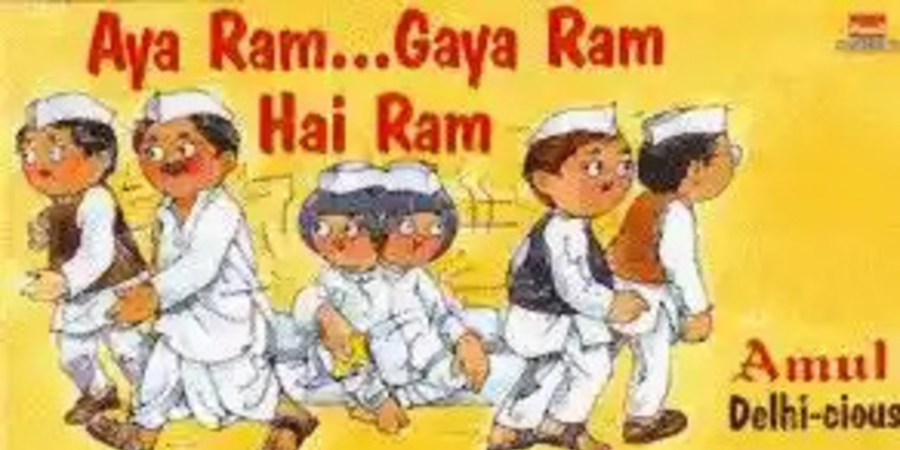

Introduction
"Aya Ram Gaya Ram" is a phrase that has become synonymous with political opportunism and defection in Indian politics. It originated in the late 1960s and reflects the frequent switching of political loyalties by legislators for personal or strategic benefits. This phenomenon, while not unique to India, gained particular notoriety due to its repeated occurrence in the country's democratic system, leading to significant political instability.
The Origin of the Phrase
The term "Aya Ram Gaya Ram" was first used in Haryana in 1967. A Member of the Legislative Assembly (MLA) named Gaya Lal defected thrice in a single day, moving between the Congress, the United Front, and back to the Congress party. This remarkable display of political fluidity was widely mocked and eventually immortalized in the phrase "Aya Ram Gaya Ram" (literally, "Ram came and went"). The incident underscored the vulnerabilities in India's nascent democratic setup, where anti-defection laws were yet to be implemented.
The Politics of Defection
Political defections are not new and can be attributed to various factors, such as:
The "Aya Ram Gaya Ram" trend saw a sharp rise in the decades following the 1960s, leading to widespread criticism and calls for reform.
Impact on Indian Democracy
The practice of defections has had far-reaching implications:
Legislative Response: The Anti-Defection Law
To address the growing problem of defections, the Indian Parliament enacted the Tenth Schedule of the Constitution in 1985, also known as the Anti-Defection Law. The key provisions include:
While the law has reduced the frequency of defections, it has not completely eradicated the problem. Politicians have found ways to exploit loopholes, such as orchestrating mass defections to avoid disqualification.
Modern-Day Relevance
The spirit of "Aya Ram Gaya Ram" continues to influence Indian politics, albeit in subtler forms. High-profile defections and engineered political crises remain a recurring theme, particularly in states with coalition governments. The Anti-Defection Law, despite its strengths, is often criticized for being poorly implemented and for concentrating excessive power in the hands of the presiding officer.
Conclusion
"Aya Ram Gaya Ram" serves as a reminder of the challenges of maintaining a robust and ethical political system in a diverse democracy like India. While legislative measures have provided some safeguards, the ultimate solution lies in fostering a culture of accountability and integrity among politicians. Only then can Indian democracy truly thrive, free from the shadows of opportunism and instability.
